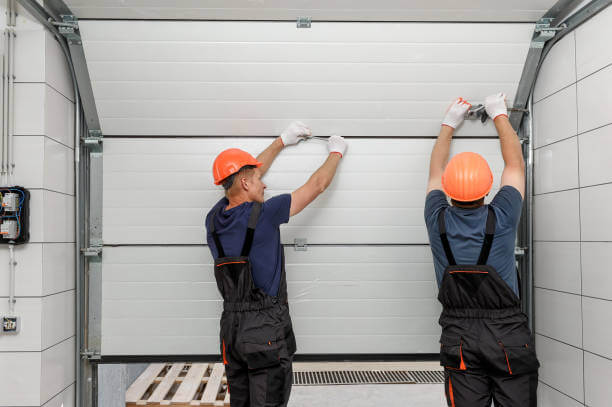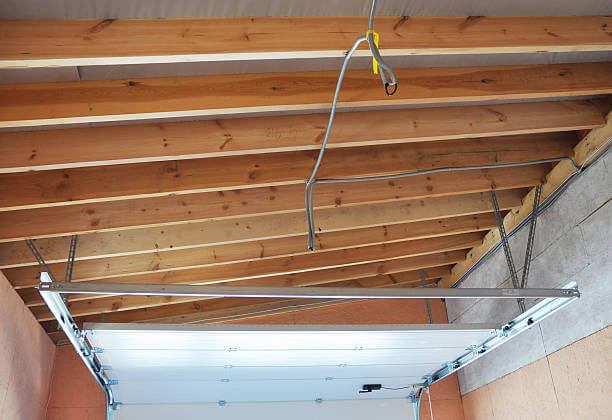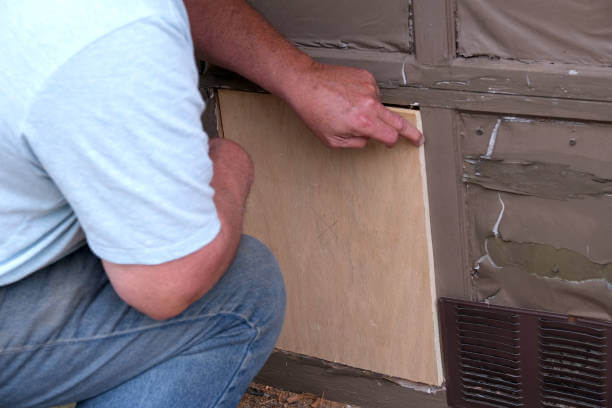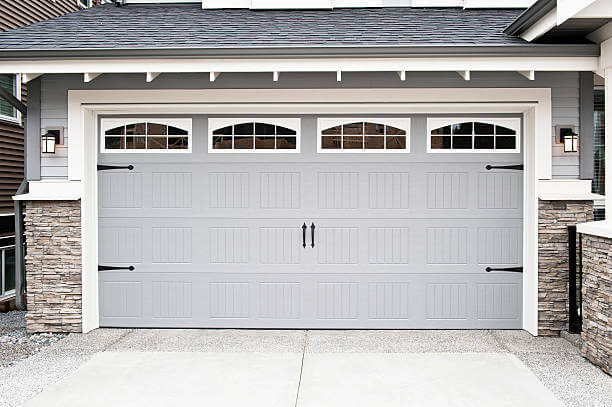- Home
- Ways to Conserve Energy At Home
- Are Garage Door Insulation Kits Worth It
Are Garage Door Insulation Kits Worth It- Costs and Pros and Cons
When you face extreme temperatures, the right kinds of insulation can mean the difference between sky-high energy bills and manageable costs. Garage door insulation kits promise to be a cost-effective solution, but are they truly worth the investment? Let's dive into the facts to uncover the truth.
Introduction to Garage Door Insulation
Garage door insulation is crucial in enhancing your home's energy efficiency. It helps maintain a comfortable temperature in your garage space, reducing the need for excessive heating or cooling.
1. The Role of Insulation in Your Garage's Efficiency
Choosing the right door company to supply and install your insulation can significantly impact your garage's efficiency. Proper insulation keeps your garage warmer in winter and cooler in summer, contributing to lower energy costs.
How Insulated Garage Doors Enhance Home Comfort
Insulated garage doors play a pivotal role in your home's overall energy efficiency. They help maintain a more consistent temperature, making your garage a more comfortable part of your home.
Evaluating the Worth of Insulated Garage Doors
Insulated garage doors may offer a plethora of benefits, including making your home several degrees warmer during cold months. This insulation can be a game-changer for both comfort and energy savings.
1. Energy Efficiency: A Key Benefit
Energy efficiency through insulated garage doors translates into tangible energy savings. Compared to uninsulated garage doors, insulated ones significantly reduce the strain on your cooling system, leading to lower energy consumption overall.
Understanding R-Value in Insulation
The R-value is a measure of insulation's effectiveness, provided by your door company. A higher R-value means better insulation, helping to keep your garage temperature more stable.
2. Noise Reduction and Enhanced Privacy
Insulated garage doors can also reduce noise pollution, making your home quieter and more serene. This added layer of insulation helps in keeping external noises at bay.
3. The Impact of Insulation on Garage Safety and Security
Aside from energy efficiency, insulation adds a layer of protection to your garage. It makes wood doors more resistant to break-ins, adding an extra level of security to your home.
Exploring the Types of Garage Door Insulation
Different insulation materials play distinct roles in reducing noise and enhancing your garage's thermal efficiency. Choosing the right type can make a significant difference.
1. Materials That Make a Difference
Various insulation materials, each with unique properties, contribute to reducing noise and improving thermal efficiency. Selecting the right one is crucial for maximizing benefits.
2. The Significance of Weatherstripping and Seals
For insulated doors, weatherstripping and seals are vital in preventing drafts and leaks, further enhancing insulation effectiveness and overall garage comfort.
The Pros of Opting for Insulated Garage Doors
Opting for insulated garage doors not only contributes to energy efficiency but also creates a more comfortable environment within your garage space, making it a valuable addition to your home.
1. Improved Durability
Insulated doors outperform uninsulated garage doors in durability. The added insulation helps protect the door from dents and damage, reducing the need for repairs or replacements and making insulated doors typically a smarter long-term investment.
2. Sustainability: Eco-Friendly Choices
Choosing insulated garage doors can lead to lower energy consumption and reduced energy waste, making them an eco-friendly option for homeowners concerned about their environmental impact.
3. Increased Comfort Within the Garage Space
Insulating your garage door is a smart investment that goes beyond just saving on energy bills. It transforms your garage into a more comfortable space, making it perfect for activities beyond just parking cars. Whether it's a home gym, workshop, or a place for your hobbies, insulation keeps the temperature inside more stable and pleasant. This means less shivering in the winter and staying cool in the summer, making your garage a versatile extension of your home.
4. Considerations for Attached Garages and Insulation Needs
For attached garages, the insulation decision impacts more than just the garage space itself. Air leakage between the garage and your home can strain your air conditioning, leading to unnecessary energy waste. Insulating your garage door effectively seals off this potential gap, maintaining your home's cooling system efficiency. This is especially critical for attached garages, where temperature regulation plays a key role in overall home comfort and energy savings.
Addressing Common Concerns: The Cons
While insulating your garage door offers many benefits, concerns about the initial expense and effectiveness of the insulation in extremely poorly insulated spaces can arise. The upfront cost might indeed be significant, and in garages with significant drafts or other issues, insulation alone might not solve all the problems. However, when viewed as part of a comprehensive approach to energy efficiency, the benefits often outweigh these concerns.
1. Initial Investment Costs
Investing in an insulated garage door involves upfront costs, but it's important to consider the long-term energy savings. These savings can offset the initial expense over time, making it a wise financial decision. Plus, the added benefits of increased home comfort and potential property value enhancement further justify the investment. It's a case of spending now to save and gain more later.
2. Environmental Considerations and Impact
When cold air infiltrates your garage, your air conditioning works harder, leading to increased energy use and higher utility bills. By maintaining a more consistent garage temperature, an insulated door reduces the need for excessive air conditioning. This not only saves money but also makes your home a more eco-friendly place. It’s a worthy investment that benefits both your wallet and the planet.
Tips to seal garage door sides and top
Decision-Making Factors for Garage Door Insulation
Deciding whether to insulate your garage door depends on how you use your garage. If it doubles as a workspace or living area, energy savings and comfort become even more crucial. Insulation helps maintain a stable temperature, creating a thermal envelope that enhances the usability of the space year-round. Consider your garage's role in your daily life when weighing the benefits of insulation.
1. Does Your Garage Double as a Workspace or Living Area?
If your garage serves as more than just a place to park cars, such as a workshop, studio, or living space, then insulating it can make a significant difference. The energy savings gained through creating a thermal envelope can improve comfort and usability, making it a worthwhile consideration. Insulation can transform your garage into a functional, comfortable part of your home, regardless of the weather outside.The Role of Garage Door Windows in Insulation
When considering the benefits of an insulated garage door, don't overlook the role of windows. A door company can provide options with proper insulation for windows, which are critical in maintaining an energy-efficient garage. Well-insulated windows minimize heat loss in the winter and heat gain in the summer, complementing the insulation in the rest of the door to ensure your garage remains comfortable and energy-efficient year-round.
2. Determining Your Insulation Needs: Questions to Guide You
When thinking about insulating your garage door, consider how you use your garage. Is it just for parking, or do you spend lots of time there? If your garage doubles as a workshop or playroom, insulation might be a good idea. Think about the climate, too. People living in very hot or cold places will get more benefits from insulation. Lastly, ask yourself if you're ready to handle the upfront costs for comfort and energy savings later on.
Installation Insights
Choosing the right insulation for your garage door is just the start. Next, you need to decide how you're going to install it. This decision can affect everything from the insulation’s effectiveness to your budget.
1. DIY vs. Professional Installation
DIY insulation can save money, but it's not for everyone. It requires time, patience, and some knowledge about how to handle power tools safely. If you're not confident, hiring a professional might be better. Professionals can do the job quickly and correctly, ensuring your insulation works well and lasts a long time.
2. Maintenance and Upkeep of Insulated Garage Doors
After installing insulation, keeping your garage door in good shape is important. Check the insulation regularly for any damage or wear. You might need to replace it if it gets wet or pests damage it. A well-maintained insulated door can help save on heating and cooling costs for years.
Comparing Insulated vs. Non-Insulated Garage Doors
Insulated and non-insulated garage doors serve different needs. Insulated doors are great for reducing heat transfer and noise, making your home more comfortable. Non-insulated doors might be okay if you live in a mild climate or your garage isn't attached to your house.
1. When to Choose an Insulated Garage Door
If you're looking to lower heating and cooling costs, an insulated garage door is a smart choice. It's also good for reducing outside noise. If your garage is part of your home or you use it as a workspace, you'll appreciate the extra comfort an insulated door provides.
2. Situations Where a Non-Insulated Door Might Suffice
A non-insulated door might be okay if you have a detached garage that you only use for parking cars. If your local climate is mild and you don't spend much time in your garage, you might not need the extra insulation.
Real-Life Applications: Who Benefits Most from Insulation?
Most homeowners can benefit from insulating their garage doors, but it's especially useful for those using their garage as a living space or workshop. It can make these areas more comfortable and energy-efficient.
1. Case Studies and Consumer Feedback
Many people find that insulating their garage door leads to noticeable improvements in temperature control and noise reduction. Homeowners often report satisfaction with their investment, especially in extreme climates.
2. Geographic and Climate Considerations
Where you live plays a big role in deciding if you need an insulated garage door. Homes in areas with wide temperature swings or harsh weather conditions will benefit the most from insulation. It helps keep your garage and home more comfortable year-round.
Future of Garage Door Insulation
The future of garage door insulation looks promising, with new materials and technologies making doors more efficient than ever. Innovations are focused on improving thermal resistance and making insulation easier to install for homeowners.
1. Innovations on the Horizon
Expect to see more eco-friendly materials and smarter insulation solutions that are easier to install and more effective at controlling temperature. These advancements will make insulated doors an even better investment for energy-conscious homeowners.
2. Predictions for Home Energy Efficiency Trends
As energy costs rise, the demand for homes that use less energy will increase. This trend will make insulated garage doors more popular. They help reduce energy consumption by keeping homes cooler in summer and warmer in winter, which can lower utility bills.
Making the Final Choice: Is Insulation Right for You?
Deciding on garage door insulation comes down to your needs, climate, and how you use your garage. It's an investment that can improve comfort, save on energy costs, and even increase your home's curb appeal.
1. Key Takeaways for Homeowners
Insulated garage doors offer many benefits, from energy savings to noise reduction. They're especially valuable for attached garages and homes in extreme climates. Evaluate your needs and consider the long-term savings when deciding if insulation is right for you.
2. Final Verdict: Balancing Cost, Benefits, and Needs
Deciding whether to invest in an insulated garage door comes down to weighing the upfront costs against long-term savings and comfort. If your garage serves multiple purposes or if you live in an area with extreme temperatures, the benefits in energy efficiency and comfort can outweigh the initial investment. Consider your garage's role in your everyday life and future energy savings to make an informed decision that aligns with your household's needs and budget.
Frequently Asked Questions About Garage Door Insulation Kits
1. How much money can I save with a garage door insulation kit?
The exact amount of money you can save on your energy bills will vary depending on factors such as the size of your garage and how often you use it. However, studies have shown that insulating your garage door can reduce heat loss by up to 70%, which translates into significant cost savings over time.
2. Can I install a garage door insulation kit myself, or do I need a professional?
While some homeowners may prefer to hire a professional to install their insulation kit, most kits are designed for easy DIY installation. Most kits come with clear instructions that outline the steps involved in installing the insulation material onto the panels of your existing garage door.
As long as you follow these instructions closely and use the required tools and safety equipment, you should be able to complete this project without any problems.
In Conclusion: Maximizing Your Garage's Potential
Enhancing your garage's efficiency and usability through insulation can transform it from a simple storage area to a versatile, comfortable space. By considering the right insulation options, you can turn your garage into an energy-efficient zone that complements your home's overall performance. The choice to insulate offers a pathway to not only save on energy costs but also increase the value and functionality of your home.
Navigating Your Options for a More Efficient Home
Exploring insulation options for your garage door is a step towards a more energy-efficient home. It's essential to weigh the benefits, such as reduced energy bills and increased comfort, against the cost and effort of installation and maintenance. Regular garage door repair and upkeep are crucial to maintaining these benefits over time. By carefully selecting the right insulation solutions, you can enhance your home's efficiency, comfort, and value.




